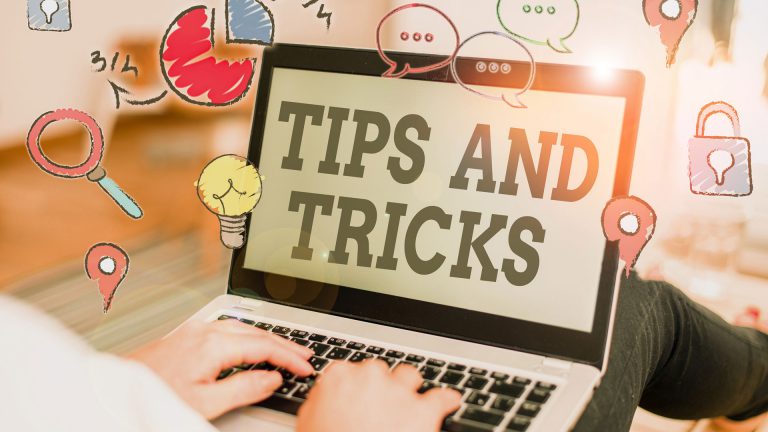Background checks (the formal ones anyway) are usually the last stage in the hiring process for an employer, along with reference checking. When we think of background checks, we tend to think that they are used for things like government jobs, security, police, and anything where you may be working with money. However, many employers across the board use background checks: military, journalism, banks, schools, and more. They are often used to weed out people who may make employees feel unsafe, to ensure that the new employee will fit in the company culture, to verify that the person has all the credentials she says she has, and to make sure that there are no strange outstanding problems with finances, court cases, or other issues that could cause problems for the employer. According to a survey done by the National Association of Professional Background Screeners and HR.com, 96% of employers have conducted a background check, for both full time and part time jobs.
What Might be Checked?
What can you expect to get checked? Well, it will at least partially depend on the type of job you are going for, but according to that survey, a good breakdown is as follows:
• 85% check criminal databases on the national level
• 89% check criminal databases on a county or state level
• 15% check fingerprint based criminal searches
• 85% check social security number traces
• 13% check credit
• 28% verify your education
• 37% check your driving records (if applicable)
• 6% check your social media *though this is a formal check. It’s unknown how many casually check, so mind your social media!
• 47% do drug and alcohol testing
• 66% check you against a sex offender registry
• 19% will verify your professional licenses (if applicable)
• 12% do international checks
• 43% do employment verification
• 89% check criminal databases on a county or state level
• 15% check fingerprint based criminal searches
• 85% check social security number traces
• 13% check credit
• 28% verify your education
• 37% check your driving records (if applicable)
• 6% check your social media *though this is a formal check. It’s unknown how many casually check, so mind your social media!
• 47% do drug and alcohol testing
• 66% check you against a sex offender registry
• 19% will verify your professional licenses (if applicable)
• 12% do international checks
• 43% do employment verification
Now, keep in mind that this is an American organization gathering this information from American employers, but it’s still worth keeping in mind as you move through your job search process.
In Canada, potential employees can go through a background check (education verification, job history, credit check, professional license check, driving abstract, etc.), Criminal record check (plus a sector on working with vulnerable people if you’re going to be working with children, seniors, or anyone else who is vulnerable such as people with disabilities), and then reference checks. It’s the same idea as what Americans go through, though the numbers are different. In both countries, employees will know that you’re getting checked because you’ll have to sign a waiver and give permission. However, you will only get the results of your criminal check for vulnerable sector because a clean background, criminal and reference check will be obvious since there won’t be any issues raised.
What Should You Do If You’re Concerned About A Background Check?
As if working on your resume, doing cold calls and interviews isn’t nerve wracking enough! Background checks can be quite stressful, especially since employers don’t have to tell you what they found-you just may never hear back! So, what can you do to make sure that your background check comes back clean or make sure that you’re aware of any potential issues so that you can get ahead of them?
Criminal checks are the most common background check. The first thing you’ll want to do is make sure you understand what your employer is allowed to check and of course, know your own background. If you know that there will be an issue (and you really ought to!), then be sure to address it in your cover letter and in the interview. Honesty is the best policy here and you can even turn it into a learning experience and something positive, such as the opportunity to do community work, learn a new skill, and make reparations.
If something strange comes up that you weren’t expecting, then you can address it. For example, you may share the same name and other information as an offender, but not be one yourself. Be sure to let the employer know that right away and do things like a fingerprint check to make yourself stand out from your doppelganger. You may also have become the victim of identity theft, so it’s important to do a criminal check on yourself, even if you think it should come back clean. And if you need to dispute your criminal check, you’ll have to talk to the RCMP in Canada or the state’s Bureau of Identification in the US to lodge a challenge. It can take a while to unravel though, so be prepared to explain what went wrong.
Another really common background check is the drug test. Employers check it primarily for safety and even where marijuana is legal, employers can still require a drug-free workplace.
Another really common background check is the drug test. Employers check it primarily for safety and even where marijuana is legal, employers can still require a drug-free workplace.
If you’re worried about your check, you can do a kit on yourself to tell you what someone will find before they find it. You should also make sure to disclose any prescription drugs you are using that may turn up and avoid eating anything with poppy seeds before the test!
With other checks, it’s important to first know if the employer is legally allowed to conduct that check and then to do it yourself so you know what to expect and what you may need to explain. Credit checks for example are common when working in government or financial sectors and it’s worth knowing for yourself what your credit score is anyway! And employers cannot know your credit score: they are just going to look at the report to make sure that everything is on the up and up.
Background checks are not necessarily going to come up for every job to which you apply (though reference checks likely will). They get increasingly more likely and important as you branch into careers where you handle more sensitive information, money, and vulnerable people. It’s important to be forthright about your background, understand what might be turned up and be ready to explain yourself as needs be or fight back in the case of identity theft or a case of mistaken identity. Remember that the employer has to protect their assets as well and background checks are one of the most convenient and efficient ways for them to ensure that they won’t hire anyone who could pose a threat to their business.
Good luck and make sure you know what people are likely to find out about you!


